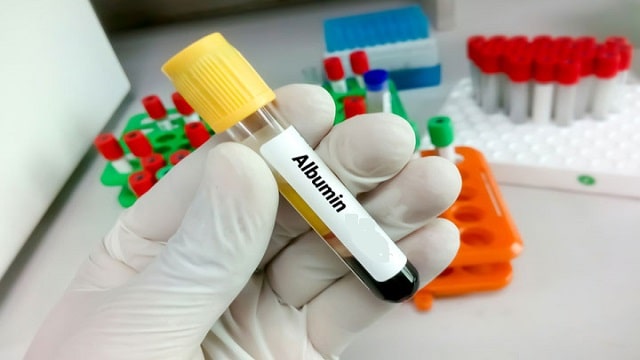Albumin is one of the most abundant proteins found in the blood. This protein is released by the liver as part of its normal function. Well, albumin has various important roles, such as maintaining fluid balance in the body. Albumin also plays a role in keeping the fluid in the blood vessels from leaking into the surrounding body tissues.
In addition, albumin also plays a role in tissue repair and helps growth by transporting hormones and essential nutrients to surrounding tissues. Albumin levels in the blood can be seen through albumin checks. If the test results show an abnormal amount, this could be a sign of a problem.
Albumin levels that are too low are called hypoalbuminemia. If this happens, the sufferer needs external albumin assistance. The goal is to restore the amount of albumin to normal values. Low levels of this protein can occur because there is a disorder in the kidney or liver. In addition, decreased albumin levels can also occur due to inflammation or malnutrition.
Why Do Albumin Check?
Doctors usually recommend this test if someone is experiencing symptoms of liver or kidney disease. This is because abnormal albumin levels can be a sign of problems with the liver or kidneys. Under normal conditions, the liver plays a role in converting protein into albumin.
However, there are several factors that can cause this process to be disrupted, so that the formation of albumin will be disrupted. As a result, there is a decrease in albumin levels in the body and can disrupt the processes that occur in the body as a whole. In addition, albumin checks are also often performed for someone undergoing dialysis to check a person’s nutritional status.
When Should You Check Albumin?
An albumin check is done when someone shows symptoms of imbalance of albumin levels in the blood which can be caused by liver or kidney problems. When the liver is having problems, symptoms that can arise are jaundice, fatigue, weight loss, fever, vomiting, diarrhea, dark urine, pale stools, pain under the right rib, tenderness under the right rib
While kidney problems are often marked by symptoms of swelling in the abdomen, legs, or around the eyes, shortness of breath, frequent urination at night, nausea, itchy skin, and erectile dysfunction in men.
Regular albumin level checks are recommended, especially for people with a history or risk factors for liver or kidney disease. This test is also recommended for someone who is malnourished or has experienced unexplained weight loss.
How to Check Albumin?
Albumin tests usually do not require a person to fast. However, there are certain medications that can alter the test results, so the doctor may advise the patient not to take them before undergoing the test.
Medications that may be advised against include anabolic steroids, insulin, and growth hormones. If you are taking any medications, it is best to consult your doctor before taking the test.
The albumin check procedure is simple and the same as a regular blood test. The medical staff will take a blood sample from a vein in the arm. Then, the sample will be examined in the laboratory by mixing a special serum.
As a result, the blood sample analyzed in the laboratory will show a number that is the level of albumin in the body. The normal level of albumin in the blood is between 3.4-5.4 grams per deciliter.
If the results are lower than normal, this could indicate certain conditions such as:
- Crohn’s disease.
- Liver disease.
- Celiac disease.
- Inflammation.
- Malnutrition.
- Nephritic syndrome.
If albumin levels are found to be too high, this could be due to consuming high-protein foods or experiencing dehydration.
Where to Check Albumin?
Albumin-level checks are carried out by competent or experienced officers. This examination can be carried out at any health facility, from clinics or health centers, hospitals, and emergency units (UGD), to health laboratories. It is recommended to immediately have a check-up at the nearest hospital if you experience symptoms of decreased albumin levels in the blood.

